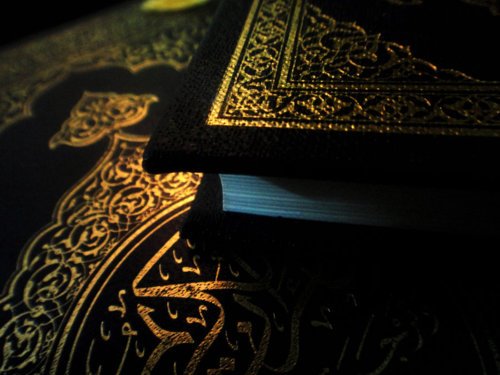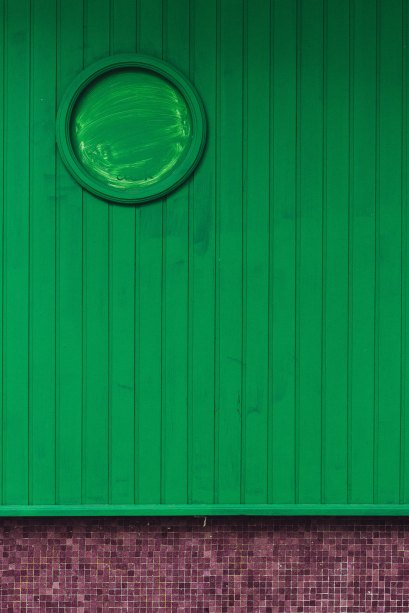
Praise be to Allah.
O Allah! Bestow Your special blessings and peace upon the source of divine providence, the adornment of the Day of Resurrection, the treasure of guidance, the decoration of the outfit, the groom of the kingdom, the tongue of the evidence, the intercessor of the Ummah, the leader of the presence, the prophet of mercy, our master, Muhammad (ﷺ).
Prophet Muhammad (ﷺ) once clarified concerning the earth’s history:
God created clay on Saturday, mountains on Sunday, trees on Monday, things entailing labour on Tuesday, and light on Wednesday. He caused animals to spread on Thursday and created Adam after Asr on Friday, the last creation at the last hour [of creation]. (Sahih Muslim, # 1300)
There is no doubt that Friday is an “Eid” or “festival” for the Muslims, as it says in the hadeeth narrated from Ibn ‘Abbas (may Allah be pleased with him) who said: The Messenger of Allah (blessings and peace of Allah be upon him) said: “This is a day of ‘Eid that Allah has ordained for the Muslims, so whoever comes to Jumu‘ah, let him do ghusl, and if he has any perfume let him put some on, and you should use the miswak.” Narrated by Ibn Majah, 1098. Ibn al-Qayyim (may Allah have mercy on him) said, describing the special virtues of Friday: Thirteen: It is a day of ‘Eid that is repeated every week. Zaad al-Ma‘aad, 1/369
Thus the Muslims have three Eids: Eid al-Fitr and Eid al-Adha, which come once every year, and Jumu‘ah which is repeated once every week. Rasulullah (ﷺ) said: “Friday is the best of days. It was on this day that Adam alayhis salaam was created, it was on this day that he was granted entry into jannah, it was on this day that he was removed from Jannah (which became the cause for man’s existence in this universe, and which is a great blessing), and the day of resurrection will also take place on this day.” (Sahih Muslim)
In olden times, the roads and alleys used to be extremely busy in the mornings and at Fajr time. All the people used to go so early to the Jaame musjid and there used to be such a large crowd that it used to look like the days of Eid . Later, when this habit was given up, people began saying that this is the first innovation in Islam. After writing this, Imam Ghazali rahmatullahialayh says: “Aren’t the Muslims ashamed of themselves that the Jews and Christians go so early in the morning to their synagogues and churches on Saturdays and Sundays. Those who are businessmen go so early to the bazaars in order to do their buying and selling. Why don’t the Muslims do the same?” The reality of the situation is that the Muslims have totally reduced the value of this blessed day. They do not even know what day this is, and what a high status it has. How sad it is that the day which was more valuable than eid in the eyes of Muslims of the past, which Rasulullah (ﷺ) was proud of and the day which was not granted to the previous nations has become so dishonoured at the hands of Muslims today and it is such a great ingratitude to the favour of Allah Ta’ala that the consequence of all this can be seen with our very eyes.”
Many Ahadeeth have been narrated from the Prophet (ﷺ) which explain the virtues of Jumu’ah prayer. For example:
1 – Muslim (233) narrated from Abu Hurayrah (may Allah be pleased with him) that the Messenger of Allah (ﷺ) said: “The five daily prayers, and from one Jumu’ah to the next, are an expiation for whatever sins come in between, so long as one does not commit any major sin.”
It was narrated from Abu Hurayrah that the Prophet (ﷺ) said: “Whoever does ghusl then comes to Jumu’ah, and prays as much as Allah decrees for him, then listens attentively until the khutbah is over, then prays with him (the imam), will be forgiven for (his sins) between that and the next Jumu’ah and three more days.” Narrated by Muslim, 857
Imam Nawawi RH said: The scholars said that what is meant by his being forgiven between the two Jumu’ahs and three more days is that a good deed is worth ten like it, so he will be rewarded with ten Hasanahs (rewards) for each of the good deeds that he did on Friday. Some of our companions said: what is meant by what is between the two Jumu’ahs is from Jumu’ah prayer and the khutbah until the same time on the following Friday, so that it will be seven days, no more and no less, then three days are added making ten in all.
2 – Coming early to Jumu’ah brings a great reward.
Al-Bukhari (814) and Muslim (850) narrated from Abu Hurayrah (may Allah be pleased with him) that the Messenger of Allah (ﷺ) said: “Whoever does ghusl on Friday like ghusl for janabah, then goes to the prayer (in the first hour, i.e., early), it is as if he sacrificed a camel. Whoever goes in the second hour, it is as if he sacrificed a cow; whoever goes in the third hour, it is as if he sacrificed a horned ram; whoever goes in the fourth hour, it is as if he sacrificed a hen; and whoever goes in the fifth hour it is as if he offered an egg. When the imam comes out, the angels come to listen to the khutbah.”
3 – If a person walks to Jumu’ah prayer, for every step he will have the reward of fasting and praying qiyaam for one year.
It was narrated from Aws ibn Aws al-Thaqafi that the Messenger of Allah (ﷺ) said: “Whoever does ghusl on Friday and causes (his wife) to do ghusl, and sets out early, and comes close to the imam and listens and keeps quiet, for every step he takes he will have the reward of fasting and praying qiyaam for one year.” Tirmidhi, 496; Tirmidhi, 410
Ibn al-Qayyim RH said in Zaad al-Ma’aad, 1/285: “Causes (his wife) to do ghusl” means has intercourse with his wife. This is how it was interpreted by Wakee’.
Mawlana Aqil Sahib (Hafidhahullah), who has written the commentary of Abu Dawud (alDurrul Mandhood) states, in all of the books of Hadith, from all of the different virtues (fadhaail), I find the above Hadith easiest to perform and greatest in reward.
Hafidh ibn Hajar (may Allaah have mercy on him) said, after quoting the Ahadeeth which speak of the virtues of Jumu’ah prayer:
What we have quoted, when taken all together, indicates that the expiation of sins from one Friday to the next is subject to all the conditions mentioned above being met, namely doing ghusl, cleaning oneself, putting on perfume, wearing one’s best clothes, walking in a calm and dignified manner, not stepping over people, not pushing between two people, not offending others, praying Nawafil prayers, listening attentively and avoiding idle speech. And Allah knows best.
As Jumu’ah starts after Maghrib on Thursday night, one should take advantage of sending Durood & Salawaat to Rasulullah (SAW) on this night. “On Fridays, send Durood abundantly on me, as it is presented before me.” (Abu Dawud)
Rasulullah (ﷺ) said: “Of all the days, Friday is the most virtuous. It is on this day that the trumpet will be blown. Send abundant durood upon me on Fridays because they are presented to me on that day. ” The Sahabah radiallahu anhum asked: “O Rasulullah! How will they be presented to you when even your bones will not be present after your death?” Rasulullah (Allah bless him & give him peace) replied: “Allah Ta’ala has made the earth haraam upon the prophets forever . ” (Abu Daud)
Book of Deeds (Nasai and Tibrani) – Imam Mustaghfiri (R.A.) narrates that Rasulullah (ﷺ) said : “Whoever recites 100 times Durood on me daily, 100 of his needs will be fullfilled – 30 worldly needs and 70 pertaining to the Akhirah.”
Tabrani narrates that Rasulullah (ﷺ) said : “My Shafaa’ah ( intercession ) will be for him who recites daily ten times Durood on me during the morning and ten times during the evening.”
Umar Farooq (R.A.) said: “Duas remain suspended between the heaven and the earth. It does not proceed upward as long as Durood on Nabi has not been recited”
FULL ARTICLE ON DUROOD:
The importance of Durood/Salawaat ﷺ
Allah’s Messenger (ﷺ) said, “Anyone of you attending the Friday (prayers) should take a bath.” (Bukhari)
It was narrated from Abu Hurayrah (may Allah be pleased with him) that the Messenger of Allah (ﷺ) said: “Whoever recites Ha-Meem (Surah) al-Dukaan on the night before Friday will be forgiven.”
It was narrated from Abu Umamah (may Allah be pleased with him) that the Prophet (peace and blessings of Allah be upon him) said: “Whoever recites Ha-Meem (Surah) al-Dukhan on the night before Friday or on Friday, Allah will build for him a house in Paradise.” al-Tabarani in al-Mu‘jam al-Kabeer (8/264).
It was narrated by al-Tirmidhi (2889) The Prophet (ﷺ) said: “He who leaves the Friday prayer (continuously) for three Friday on account of slackness, Allah will print a stamp on his heart.” (Abu Dawud).
It was narrated from ‘Abdullah ibn ‘Umar and Abu Hurayrah that they heard the Messenger of Allah (ﷺ) say on the minbar: “Let people stop neglecting Jumu’ah, or Allah will place a seal on their hearts, then they will be among those who are neglectful.” Narrated by Muslim, 865.
“Whoever would like to meet Allah tomorrow as a Muslim, let him regularly attend these five (daily) prayers whenever the call for them is given (that in the mosques), for Allah prescribed for His Prophet the ways of guidance, and they (the prayers) are part of those ways of guidance. I do not think that there is anyone among you who does not have a place where he prays in his house. But if you were to pray in your houses and forsake the Masjids, you would be forsaking the Sunnah of your Prophet (ﷺ), and if you were to forsake the Sunnah of your Prophet you would go astray. There is no Muslim slave who performs Wudu and does it well, then walks to the prayer, but Allah will record one Hasanah (good deed) for each step he takes, or raise’ him one level by it or erase one sin from him. I remember how we used to take short steps, and I remember (a time) when no one stayed behind from the prayer except a hypocrite whose hypocrisy was well known. And I have seen a man coming Supported by two others until he would be made to stand in the row.” (al Nisai)
On this day there is a time when a person’s Lord will answer his du’aa’ – by Allah’s leave. It was narrated from Abu Hurayrah (may Allaah be pleased with him) that the Messenger of Allah mentioned Friday and said: “On this day there is a time when no Muslim stands and prays, asking Allah for something, but Allah will grant him it” – and he gestured with his hands to indicate how short that time is. Bukhari, 893; Muslim, 852
“Whoever recites Surah kahf on Friday, a Noor will shine for him until the following Friday.” (Nasai, Bayhaqi, Hakim)
This means that Allah will place special light in his/her heart which will guide them towards good throughout the whole week.
Al-Mannaawi RH said: “It is recommended to read it during the day or night of Jumu’ah, as al-Shaafa’i (may Allaah have mercy on him) stated.” (Fayd al-Qadeer, 6/198)
“Whoever recites the opening ten verses of Surah kahf will be protected from the fitnah of Dajjal” (Muslim)
Another Hadith says: “If Dajjal appears before you, recite the last ten verses of Surah kahf, because they will protect you from his fitnah”.
If anyone learns by heart the first ten verses of the Surah al-Kahf, he will be protected from the Dajjal.(Saheeh Muslim)
The Prophet (ﷺ) said: “Whoever recites three Ayat from the beginning of Al-Kahf he is protected from the turmoil of the Dajjal.” (Tirmidhi).
“If anyone memorizes ten verses from the beginning of Surat al-Kahf, he will be protected from the trial of Dajjal (Antichrist).” Abu Dawud RH said: In this way Hashim al-dastawa’I RH transmitted it from Qatadah RH, but he said: “If anyone memorizes the closing verses of surat al-Kahf.” Shu’bah RH narrated from Qatadah RH the words “from the end of al-Kahf. (Abu Dawud)
Acts to be done:
1: To have Ghusl (Sunnah bath).
2: To use miswaak.
3: To wear clean clothes (preferably white ).
4: To apply Ittar.
5: To proceed early to the masjid.
The earlier a person goes, the more reward he will receive. Rasulullah (Allah bless him & give him peace) said: “On the day of jumu’ah, the angels stand at the entrance of that musjid in which jumu’ah salaat is to be offered. They write down the name of the person who enters the musjid first, and thereafter the name of the person who follows, and they continue doing this . The person who entered first will receive the reward of sacrificing a camel in the path of Allah, the one who followed him will get the reward of sacrificing a cow, thereafter a chicken, thereafter the reward of giving an egg as charity in the path of Allah. Once the khutbah commences, the angels close the register and begin listening to the khutbah.” (Bukhari and Muslim)
6: To walk to the masjid.
7: To sit near the Imam.
8: Not to walk over the shoulder of people to get to the front.
9: not to indulge in vanities during khutbah.
10: To listen to the khutbah attentively.
11: To recite Durood Shareef abundantly.
12: To recite Surah kahf.
13: To perform Salatul Tasbeeh.
14: To make excessive du’as especially between Asr And Maghrib.
Rasulullah (ﷺ) said: “Friday is the “mother” of all days and the most virtuous in the sight of Allah Ta’ala. In the sight of Allah Ta’ala, it has more greatness than Eid ul-Fitr and Eid al-Adha. ” (Ibn Majah)
Rasulullah (ﷺ) said: “The Muslim who passes away on the night or during the day of Friday, Allah Ta’ala saves him from the punishment of the grave .” (Tirmidhi)
Ismail Ibn Nazir Satia (One in dire need of Allah’s Forgiveness, Mercy and Pleasure).
1 Jamadul Akhar 1437
 حضرت شیخ مولانا سليم الله خان زید مجدہ کي آج بروز جمعرات کے سبق میں طلبائے کرام کو اھم
حضرت شیخ مولانا سليم الله خان زید مجدہ کي آج بروز جمعرات کے سبق میں طلبائے کرام کو اھم Interest or Ribâ: Which is Prohibited?
Interest or Ribâ: Which is Prohibited?
 A message every adult should read because children watch you and do as you do, not as you say.
A message every adult should read because children watch you and do as you do, not as you say.

 Jihad for Truth
Jihad for Truth